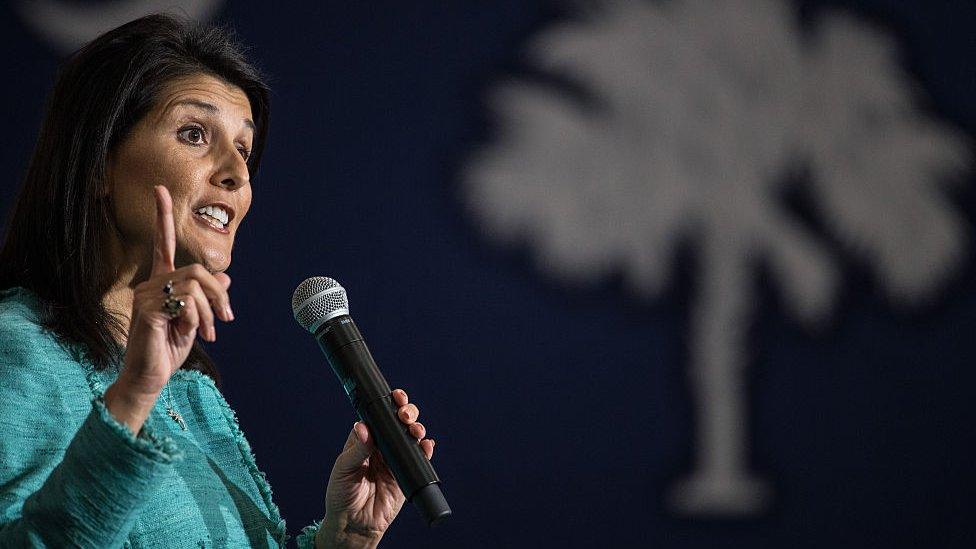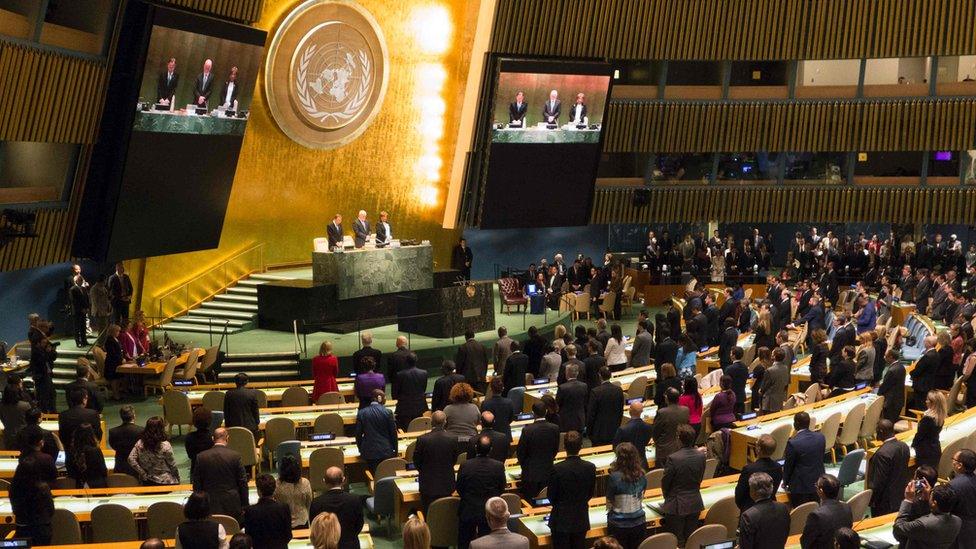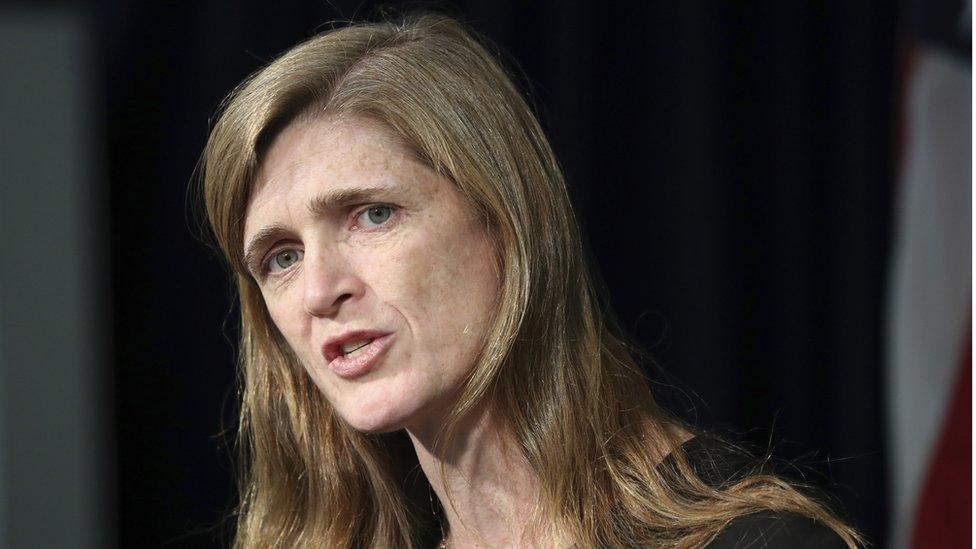Nikki Haley: Does it matter that a UN ambassador has no foreign policy experience?
- Published

Notwithstanding his boasts about knowing more than the generals, Donald Trump also stressed during the 2016 campaign that those with greater foreign policy experience made a mess of the world, Iraq in particular. Actual experience was overrated.
When Americans went to the polls on 8 November to select the next leader of the world's most powerful nation, voters in 30 of America's 50 states agreed. Trump is now the president-elect and putting together his national security team.
While it's hard to discern the pillars of a Trump foreign policy from his actual choices and rumoured favourites - his transition is proving to be every bit as unconventional and unpredictable as his candidacy - actual experience is not a prerequisite to be America's chief diplomats, the secretary of state and US ambassador to the United Nations.
South Carolina Governor Nikki Haley appears to be Trump's pick to be UN ambassador.
Former Massachusetts Governor and presidential candidate Mitt Romney is one of the frontrunners to be secretary of state. Another is former New York City Mayor Rudy Giuliani. None of them possess a lengthy foreign policy resume.

Does their lack of experience in geo-politics matter? Well, no and yes.
When it comes to the geo-, each would be supported by a career diplomatic bureaucracy to develop policy options and talking points.
Policy doesn't advance in a vacuum. Gaining international support for what America wants to do is all about politics. As successful elected officials, their political skills can serve them well.
Many leading international diplomats are politicians, although their skill and knowledge can vary widely, from the profound to the profane.
For every prime minister like Lee Hsien Loong of Singapore, who can provide off-the-cuff a detailed and sophisticated tour d'horizon of the Asia-Pacific region, there is a boorish novice like Philippine President Rodrigo Duterte.

Trump and the world

Hillary Clinton frequently cited her electoral experience as a senator and presidential candidate in diplomatic meetings to break the ice with a foreign leader.
She understood that hesitation to follow American advice was frequently less about a substantive disagreement than a local political problem. Her ability to relate, politician to politician, made her more effective.
The lack of foreign policy experience will not be a big issue externally - America's relationships with key allies and friends are driven by long-standing interests.
What may handicap a Haley or Romney (but not a Giuliani) is the lack of an established relationship with Trump himself, who seems to value loyalty above everything else.
While bureaucratic heft matters - the views expressed by the secretary of defense, secretary of state, director of Central Intelligence and chairman of the joint chiefs carry weight in the White House Situation Room - access matters more.
Recent experience bears this out. During the Obama administration, those with the strongest relationship with the president had outsized influence.

Haley takes over from Samantha Power
In one of its defining moments, dealing with the red line involving chemical weapons in Syria, Denis McDonough, the White House chief of staff, who had been with Obama since the early stages of the 2008 campaign, went for an 11th hour walk with the president.
Obama then overruled his national security team and sought congressional approval for military strikes.
During the Bush administration, Vice-President Dick Cheney was a key player during formal policy deliberations, but frequently worked around the established process through his regular one-on-one meetings with the president.
While Haley and Romney could well balance Trump's more ideological picks for national security advisor and director of Central Intelligence, they face an uphill struggle to gain real clout.
Haley backed Senator Marco Rubio during the South Carolina primary, but supported Trump as the Republican nominee. Romney was outspoken in calling Trump unfit to be president, although they had a constructive meeting in recent days.
Trump may well invite them to join his team. Whether they join his inner circle is another question entirely.
PJ Crowley is a former US assistant secretary of state and author of Red Line: American Foreign Policy in a Time of Fractured Politics and Failing States, due for release in December
